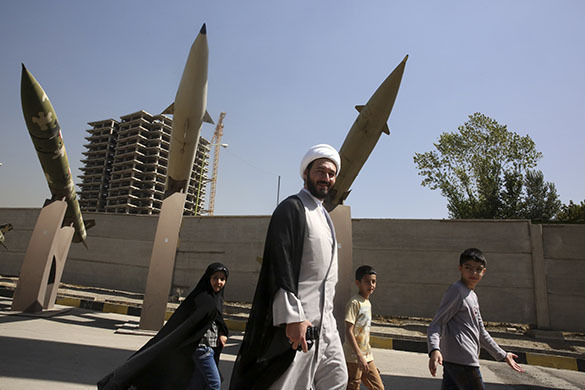In the Middle East, passions run high
The situation in the Middle East is developing rapidly. The crisis around Qatar has probably been one of the key events in the region lately. The crisis has led to the creation of the so-called Arab Quartet - the coalition of Saudi Arabia, the United Arab Emirates, Bahrain and Egypt - a potential qualitatively new centre of power in the Arab world and the Middle East in general. Russian policy-makers face a problem of choosing a strategy in the region for the future.

The Arab Quartet is a project that has attracted many generations of ideologists and politicians in the Arab world. So far, a lot of different recipes have been tried, but none of them has created a savoury dish. Integration efforts of the Arabs would break up every time against their own inability to negotiate problems between themselves and their absolute reluctance to sacrifice something for the sake of common goals and values.
Until recently, it appeared that the most successful project would be the Cooperation Council of the Arab States of the Gulf (known for the initials as GCC). This group, including Saudi Arabia, the UAE, Kuwait, Bahrain, Oman and Qatar, has moved along the path of integration to the level of the introduction of a joint currency and the creation of unified armed forces.
The crisis around Qatar put these and other long-term plans in doubt, as it has revealed a split in such a seemingly powerful structure. After all, not all council members supported anti-Qatar initiatives of Manama, the Emirates and Riyadh: Kuwait and Oman refused to join the blockade of Doha. It becomes obvious that the GCC is not exempt from the traditional inability of Arab states to unite.
In a nutshell, the history of Arab integration initiatives makes one cast serious doubts on the stability and prospects of the new quartet.
It is worthy of note that Jordan, an influential state in the Arab world, as well as the State of Palestine, the political role of which exceeds its potential, also tend to join the Arab Quartet.
Most importantly, Israel sees the Arab Quartet as a possible ally. Tel Aviv openly makes it clear that it would like to create a military-political alliance with the countries of the quartet plus Jordan to confront Iran.
The Iranian factor, of course, is one of the main factors for the unity of the Arab quartet. The so-called Iranian threat has become a common goal for most of its participants. At the same time, it has revealed a weak point inside the GCC, putting it on the brink of collapse. Qatar became an outcast because of the wish to get closer to Iran, and Kuwait and Oman refused to blockade Doha, since they themselves maintain very close ties with Tehran.
If the group retains its current format (with the participation of Jordan) and finds a common language with Israel, then its future is likely to be more specific. There is a hope that its founders will be able to avoid temptations of Arab universalism - the desire to realise the dream of uniting the entire Arab homeland.
To crown it all, the alliance of two largest Arab countries - Egypt and Saudi Arabia - can be considered a fundamentally important peculiarity of the quartet. In our opinion, combining the potentials of these states - the military, intellectual and industrial potential of Egypt and the financial and energy potential of the Kingdom of Saudi Arabia - can create a qualitatively new pole of power in the Middle East. Especially if Israel joins it.
In the light of all this, Russia will have to choose between Iran and the Arab Quartet. Will Russia use the crisis around Qatar in order to strengthen ties with Qatar or will Russia eye the Arab Quartet? For the time being, it appears that Moscow prefers to look in the direction of Qatar.
Dmitry Nersesov
Pravda.Ru
Read article on the Russian version of Pravda.Ru
Subscribe to Pravda.Ru Telegram channel, Facebook, RSS!


